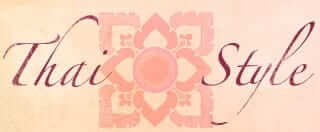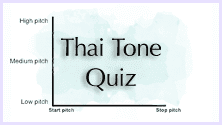ใหม่ : Mài = [State modifier] ‘new’
Males/Females say :
แล้วพบกันใหม่ครับ/ค่ะ : Láew Pó’b Gun Mài Krúb/Kâ = See you in the new occasion. / See you another time.
Note : “See you.” is an English phrase used when parting with someone . In Thai, we have our own phrase used when parting from someone.
Language points :
แล้ว : Láew has two functions in Thai language. 1. [Tense] ‘already’ (used at the end of a statement, which indicates past tense) 2. [Modifier] ‘and then ; then’ (used at the beginning of a statement or a question sentence)
พบ : Pó’b = [Action verb] ‘to meet ; to come across ; to encounter’
กัน : Gun = [Pronoun] one another ; each other ; together
ครับ : Krúb (used by males) / ค่ะ : Kâ (used after a statement by females) / คะ : Ká (used after a question by females) = [Particle] used when finishing a word, clause, statement, question sentence, etc. to show politeness or speak politely. For example, Sà-wùd-dee means Hello but Sà-wùd-dee Kâ is more polite. [Exclamation word] ‘Yes’ used in two situations; 1. used as a polite response to someone addressing you. 2. used to politely acknowledge or encourage someone to continue speaking.
Culture Point :
1. You do not need to add informal polite particle at the end of every sentence. Usually, it’s added with Wùd-dee for first impression then you can use the polite particle sometimes to make a conversation flow, to be consistent and harmonized.
2. Thais like to speak with short sentences in informal conversation.


